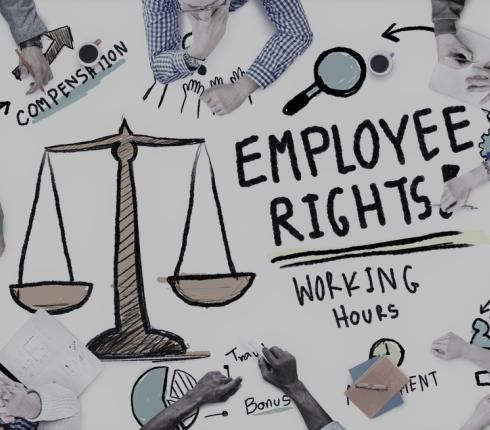NJORD Estonia: What should an employer know about employee's copyright?
In executing their work duties, employees enjoy copyrights in the works they have created. The copyright created in employment relations is governed by the Copyright Act, which prescribes favourable standards for the employer, but should not be the only measure for the employer to rely on.
Inadequate or inaccurate regulation of issues concerning intellectual property leads to misunderstandings and disputes between the employee and the employer, and between the employer and third parties with whom the employer concludes agreements related to the intellectual property. The main issues that emerge are who, and to what extent, is the owner of the copyright created during the work. This issue is particularly important in the case of works of substantial economic value. For example, if an employee has created a trademark for a company (including, for example, a logo, a slogan or an audio clip), or has created a computer program or database or participated in the creation thereof.
Economic rights of an author are transferred to the employer
The employee enjoys economic and moral rights in the work or part thereof created in the course of the employment relationship.
Economic rights include, for example, the right to reproduction or copying, to translation, customisation, public performance, etc. Economic rights of an author are transferable. If a work is created in the execution of the duties established in the employment contract, the economic rights of the author in the work created in the execution of work duties will automatically be transferred to the employer, as provided in the Copyright Act. It is important to bear in mind here that under the law, the economic rights of the author are transferred to the employer only in case of the results of a creative activity which have been created in the execution of the employee's direct duties. In the event of a dispute over whether the work was created within the scope of the direct duties, the provisions of employment documents (employment contract, annexes thereto, job description, any separate agreements with the employee) are mainly used to resolve the dispute.
For example, an employee creates a concept and design for web and mobile solutions, as established in the employment contract. The employer sees that the employee is doing a great job and asks him/her to create a new logo for the employer, even though a task like this is not prescribed in the employee’s employment contract. If the employee does the job, but the employee’s job description has not been supplemented, the employer risks having the work not deemed to be created in the execution of the employee's direct duties, meaning that the economic rights of the author in the logo remain with the employee. The use of or transfer to the employer of the copyrights created outside the execution of direct duties must be regulated in a separate agreement with the employee. In this case, the employee is entitled to obtain remuneration in addition to their salary.
The parties to the employment relationship must also bear in mind that the law prescribes some exceptions for computer programs and databases created in the context of the employment relationship. Namely, in the case of the creation of computer programs and databases, the employee’s economic rights are not automatically transferred to the employer. Here, the law prescribes that from the moment of creation of the work, the employer will be granted an exclusive license to exercise all economic rights in the program or database unless the parties have agreed otherwise. Thus, if the employer wishes to enjoy exclusive ownership of the economic rights of a computer program or database, a corresponding agreement with the employee on the assignment of economic rights must be concluded. It should also be borne in mind that upon assignment of the economic rights the employee is entitled to obtain remuneration for the transfer of rights.
Moral rights of an author are not automatically transferred to the employer
Unlike the economic rights of an author, which are aimed at ensuring the author's right to obtain financial gain from the work, the moral rights ensure the author a relation to and control over their work. Thus, among other things, moral rights include the author's right to appear in the public as the creator of the work and claim that the users of the work publicly recognise them as the author of the work, the right to supplement and improve the work and the right to request that the use of the work be terminated.
The moral rights of an author are inseparable from the author’s person, i.e. those rights are non-transferable and cannot be sold. Unlike the economic rights of an author, which are transferred to the employer for the works created in an employment relationship without any separate agreement or without the consent of the employee, the moral rights of an author in the work created in the execution of their duties will remain with the employee. Moral rights can be granted for use under a license.
A common mistake is that upon conclusion of employment contracts the parties do not regulate the moral rights of the employee arising during the performance of the employment duties. Employers often think that the moral rights of the employees belong to the employer similarly to economic rights, because the employee is paid salary. However, in order to use the work lawfully, the issue of a license to the employer and the terms for such licensing must be regulated by a separate agreement. A relevant provision may also be included in the employment contract. Thus, if the employer uses the works created by the employee in the execution of their duties in its own interests without the consent of the employee for exercising the moral rights, it may be a case of infringement of the employee’s moral rights. In this case, the employer runs a risk of being held liable for copyright infringement.
Practical recommendations for the employer:
- Be careful when regulating the employees' work duties in writing, especially if the creative activity can result in valuable copyrighted work for the employer. If the work duties are defined too narrowly in the employment documents and the employee's actual activity exceed the tasks set out in the employment contract, the work created in the execution of the duties not regulated in the employment documents may not qualify as a work created “in the execution of direct duties” for the purposes of the Copyright Act. This means that the employee's economic rights in the work as an author will not be transferred to the employer and the employer may not use the work without the consent of the employee.
- As regards the moral rights of an author, the best option for the employer is to obtain an exclusive license from the employee for the use of the moral rights of the author. Obtaining an exclusive license means that the author will no longer have the right to exercise/use his/her moral rights as an author or grant a license to third parties for the use thereof. The employer has to bear in mind that if the employee as the author grants their moral rights to use under a license, the employee will be entitled to receive remuneration.
- Information technology companies need to pay more attention to regulating the copyrights arising for employees. In addition to the provisions in the employment contract, it might be reasonable to conclude a separate agreement regulating the intellectual property issues with the employee for major IT development projects.
































